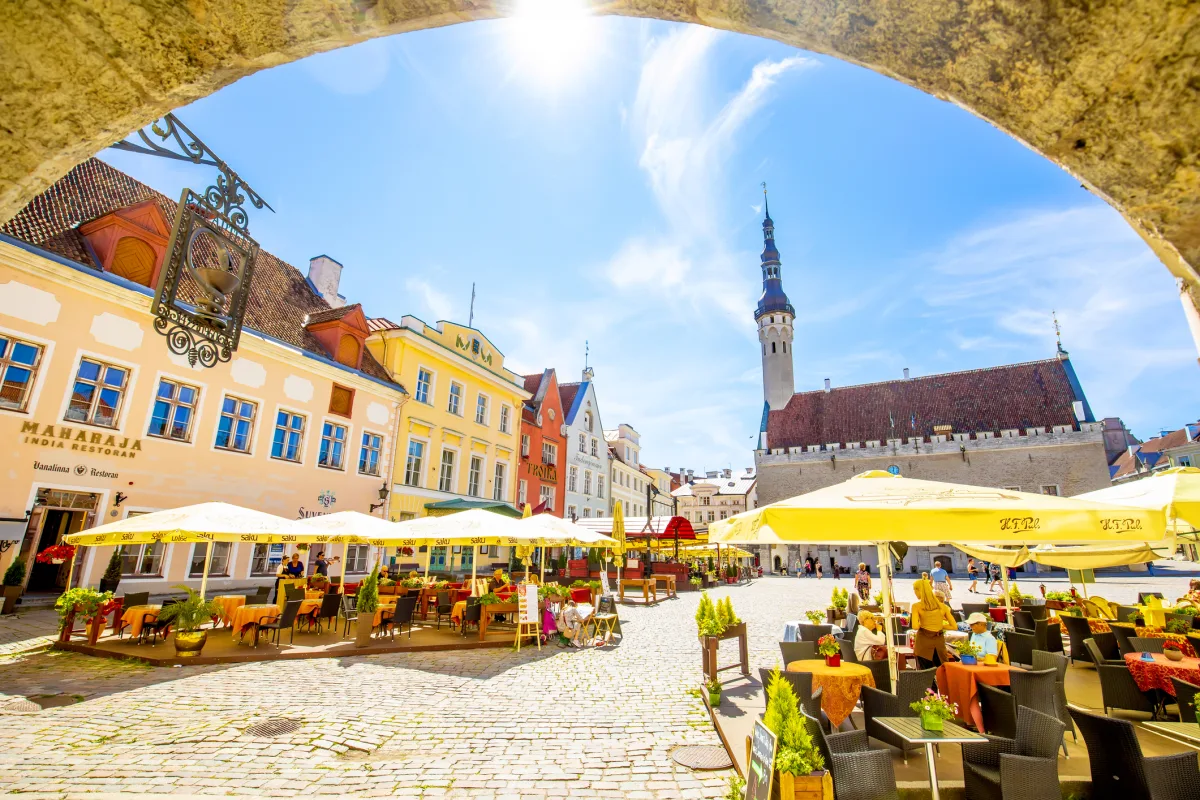History, it seems, has an irritating habit of contradicting the Kremlin’s spin doctors. Last week, Maria Zakharova, Russia’s foreign ministry spokeswoman, marked what she termed, “the 85th anniversary of the establishment of the Estonian, Latvian, Lithuanian SSRs” with characteristic bombast, claiming the three Baltic states had been reduced to “Europe’s economic periphery” despite the “significant advantage of large-scale Soviet investments and subsidies”.
The Russian Foreign Ministry later made reference to falling populations in the Baltic states as further ‘evidence’ of their supposed post-Soviet decline.
We might charitably assume Zakharova’s economic education ceased sometime around 1991—though that would be unfair to Soviet statisticians, who at least recognised when their numbers were fabricated.
The reality Zakharova so studiously avoids is rather more awkward for Moscow’s narrative. According to the World Bank, Russia’s GDP per capita stands at a rather modest 14,889 US dollars, whilst the supposedly peripheral Baltic states have left their former overlord in the economic dust.
Estonia boasts GDP of 31,170 US dollars per capita, Lithuania 29,386 US dollars and Latvia 23,367 US dollars—all exceeding Russia by a considerable margin. If this constitutes economic periphery, we might wonder what term Zakharova reserves for Russia itself.
The inconvenient truth of ‘establishment’
Zakharova’s euphemistic reference to the “establishment” of Baltic SSRs deserves particular scrutiny. What she delicately terms “establishment” was, in fact, illegal occupation and annexation under the secret protocols of the 1939 Molotov-Ribbentrop Pact, whereby Nazi Germany and the Soviet Union carved up Eastern Europe like a Christmas goose.
After Soviet troops invaded in summer 1940, Moscow compelled Baltic governments to resign, imprisoned politicians who later died in Siberian gulags, and staged rigged elections with falsified results.
Most Western countries never recognised this annexations, considering them illegal—a position maintained by the United States courts, the European Parliament, and the European Court of Human Rights. The Soviet Union’s own Supreme Council condemned the Molotov-Ribbentrop Pact in 1989, though Russian lawmakers are now attempting to revoke that condemnation—historical revisionism that would make Orwell’s Ministry of Truth blush.
From backwater to Baltic tigers
The transformation in the Baltics since independence renders Zakharova’s comments about demographic decline particularly irrelevant. Yes, population has fallen—though this says more about Soviet-era artificial population inflation through Russian settlement than post-independence failure. Estonia now ranks first globally in the International Tax Competitiveness Index and eighth in the Economic Freedom Index. Latvia sits second in tax competitiveness, Lithuania fifth, and both countries make the top 25 in economic freedom. These are hardly the hallmarks of economic periphery.
Meanwhile, Russia’s economy resembles a petrol station masquerading as a country.
Zakharova’s claims about Soviet infrastructure “gifts” reveal either stunning historical ignorance or deliberate deception. Prior to World War I, Latvia was an advanced manufacturing hub within the Russian Empire—hardly the backwater requiring Soviet salvation that Moscow’s mythology suggests. Even during Czarist rule, Estonia developed a substantial industrial sector, including the world’s largest cotton mill.
Soviet investment came with strings attached—specifically, the strings of political subjugation, economic extraction, and demographic engineering. The infrastructure Moscow built served primarily to integrate Baltic economies into Soviet command structures, not to benefit local populations.
True development began only after independence, when Baltic governments could pursue policies serving their citizens rather than Moscow’s imperial appetites.
Today’s Baltic achievements make a mockery of Zakharova’s periphery narrative. In February 2025, all three states successfully disconnected from Russian electricity grids and synchronised with Central European systems—a symbolic declaration of energy independence that must particularly gall Moscow.
The imperial neurosis
Zakharova’s comments expose Russia’s inability to accept that former Soviet territories might prosper without Moscow’s heavy hand. The broader context makes her timing especially tone-deaf: Russia continues to view the Baltic states as an aggressive trinity whose primary function should be serving Moscow’s interests rather than pursuing independent policies. This imperial mindset suggests Moscow has never truly accepted Baltic independence—a reality that makes NATO membership existentially vital.
Perhaps most tellingly, Zakharova’s complaints about Baltic ingratitude reveal Moscow’s continued expectation of deference from nations it illegally occupied for half a century. The fact that Russian lawmakers are now attempting to rehabilitate the Molotov-Ribbentrop Pact—the very agreement that enabled Baltic occupation—suggests the Kremlin’s appetite for historical revision knows no bounds.
The Baltic states’ European success story represents everything Vladimir Putin’s Russia fears: proof that post-Soviet nations can thrive without Moscow’s ‘protection’.
As for being relegated to Europe’s periphery, the Baltic states might reasonably ask: Peripheral to what, exactly? Certainly not to prosperity, democracy, or international respectability—areas where they have demonstrably outpaced their former colonial master.
Zakharova’s comments sound rather like those of a discarded lover insisting their ex cannot possibly be happy without them. The evidence suggests otherwise.
Photo: Dreamstime.







